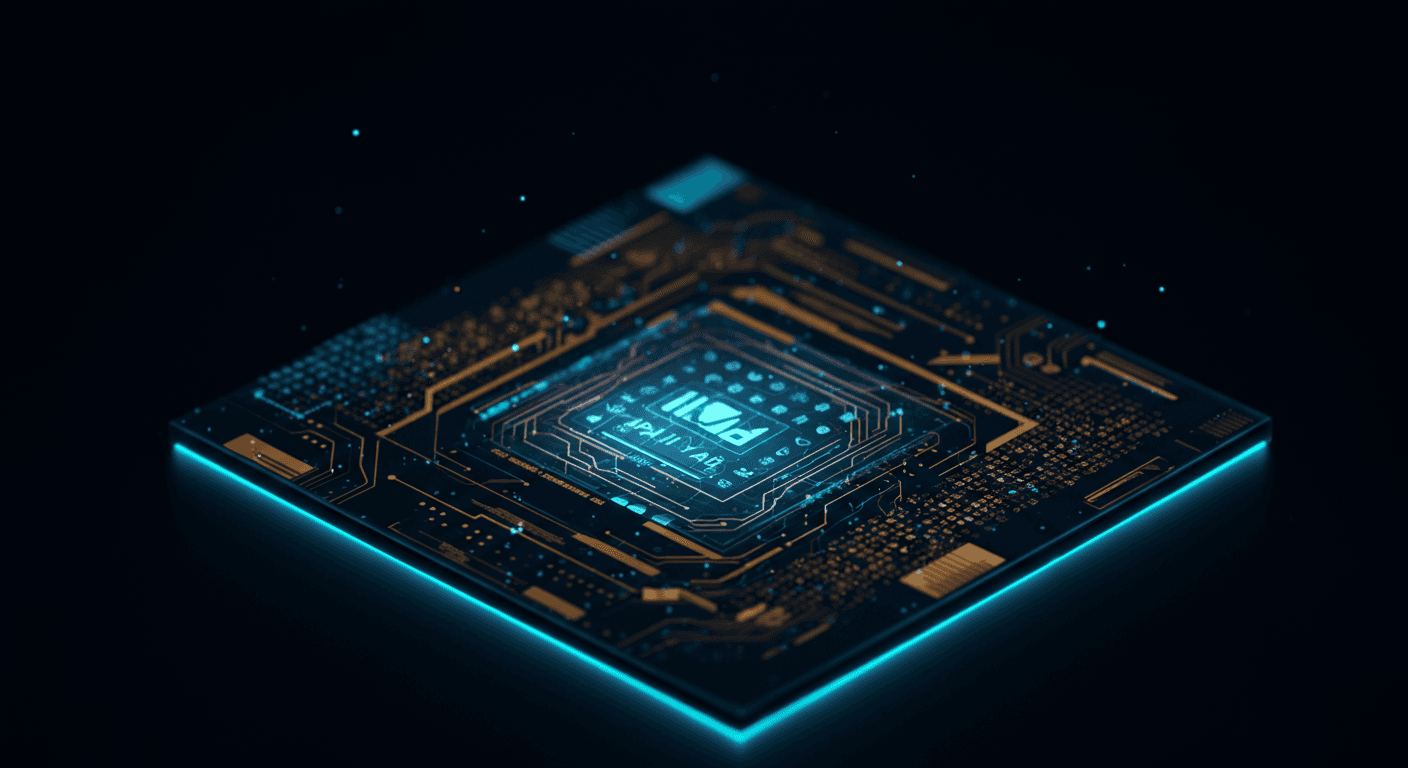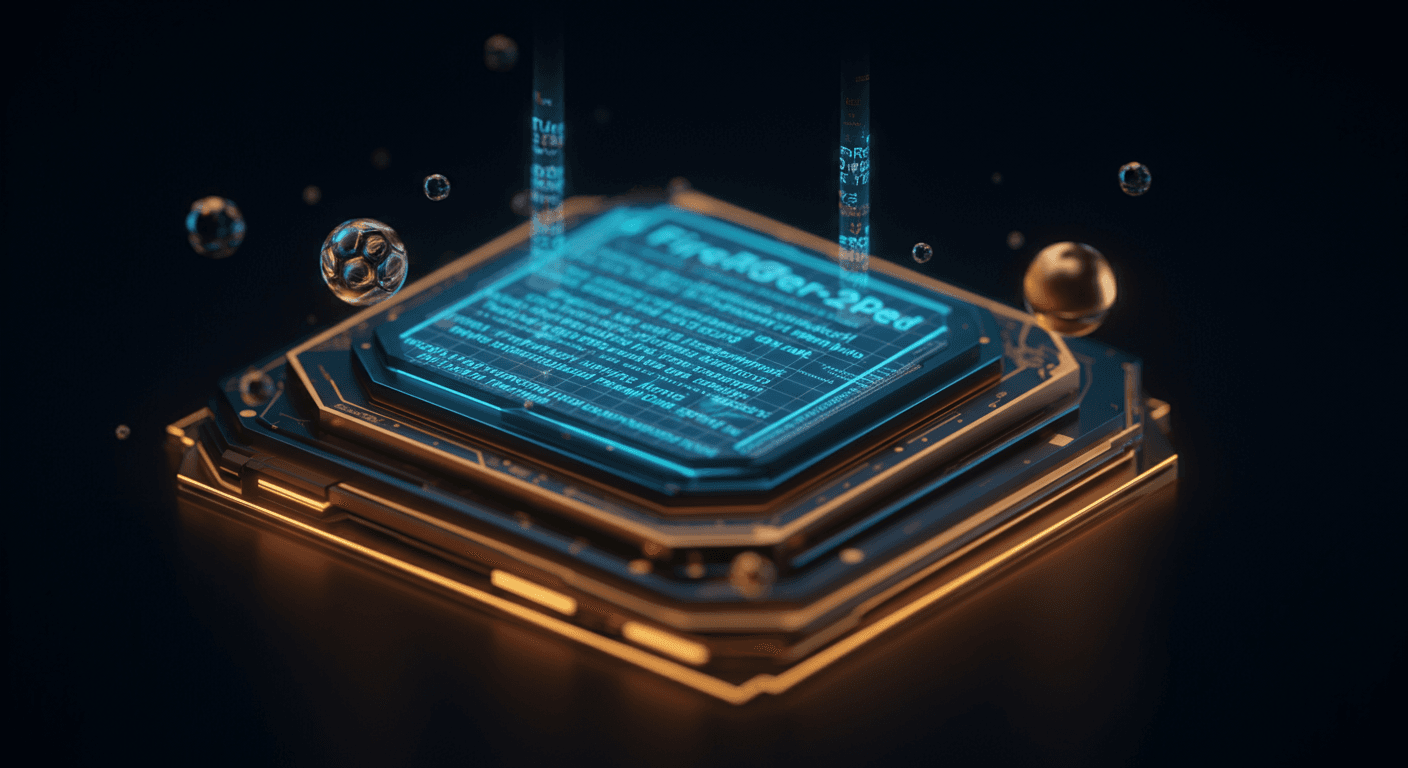Gemini's Personalization Lag: How Google Trails Anthropic and OpenAI in AI Memory

The demand for AI that remembers our preferences and anticipates our needs is skyrocketing.
The Personalized AI Imperative
Personalized AI offers experiences uniquely tailored to individual users. Imagine ChatGPT understanding not just your query, but the context of all previous interactions, remembering your favorite writing style, or preferred tone for communication. This level of personalized AI isn't just a convenience, but a key element in making AI truly useful.Gemini's Current Stance
Google's Gemini has made strides toward personalization, offering features that allow for some level of customization. For example, Gemini attempts to learn from your interactions and adapt its responses accordingly. However, compared to offerings from Anthropic and OpenAI, many users find these efforts limited.Memory: The Missing Piece
"We recognize the need for AI to be more personalized and are actively working on improving Gemini's memory capabilities." - Google AI Spokesperson, July 2025.
'Memory' in AI refers to its ability to retain and recall past interactions, enabling it to build context and understanding. This is crucial for true personalization. Without robust memory, AI systems are essentially starting from scratch with each interaction, limiting their ability to provide truly tailored experiences. Competing models, like Anthropic's Claude, are making significant headway in this area.
AI Personalization Strategies
While Gemini plays catch-up, the future likely holds diverse AI personalization strategies. These may include:- Local data storage options for enhanced privacy.
- User-defined profiles for explicit preference setting.
- Advanced neural architectures designed for long-term memory.
Gemini's promise of personalized AI experiences feels a bit like waiting for a delayed flight – we know it's coming, but when?
Gemini's Current Personalization Features: A Closer Look

While Gemini is still catching up to competitors like Anthropic's Claude and ChatGPT in terms of true long-term memory and personalization, Google has been making incremental steps. Let's dissect what's currently on offer.
- Activity Controls: Gemini heavily relies on your Google Account activity.
Privacy and the Personalization Paradox
Personalization hinges on data, and that inevitably raises privacy concerns. While Google emphasizes its commitment to data security, the opacity surrounding how this data shapes Gemini's behavior can be unsettling for some Privacy Conscious Users. The lack of clear Gemini personalization settings review and granular control over data usage continues to fuel this debate.
While not yet fully realized, the potential for Gemini to truly learn and adapt to individual needs is immense, provided Google can address the privacy and transparency hurdles.
Anthropic and OpenAI: Setting the Bar for AI Memory
While Gemini is playing catch-up, Anthropic and OpenAI are already exploring the possibilities of robust AI memory. Think of it as the difference between a goldfish (Gemini) and an elephant (Claude or ChatGPT) – one remembers fleeting details, the other holds onto experiences for the long haul.
Claude: A Conversational Historian
Claude, from Anthropic, is increasingly recognized for its expanded context window, allowing for far more comprehensive and relevant interactions.
For example, imagine feeding Claude an entire novel and then discussing character motivations and plot inconsistencies – try doing that with a chatbot that forgets details after a few paragraphs.
ChatGPT: Remembering More Than Just Yesterday
ChatGPT, from OpenAI, has been iteratively improving its memory capabilities, moving beyond short-term recall to incorporate past conversations and user preferences into its responses. It’s becoming less about isolated interactions and more about building a continuous, evolving relationship.
How They Compare
| Feature | Claude | ChatGPT |
|---|---|---|
| Memory Approach | Larger context window, remembers more details in a single session | Iterative learning from past interactions |
| Context Window Size | Significantly larger than Gemini, precise numbers vary | Continuously evolving, but generally smaller than Claude |
| Benefit | Deeper, more nuanced conversations | Personalized and contextually relevant responses |
The Value of a Good Memory
A strong AI memory translates to tangible benefits:
- Improved Context: Reduces the need to repeat information, leading to more efficient conversations.
- Relevant Responses: AI can leverage past knowledge to tailor answers to specific user needs.
- Enhanced Experience: Creates a more intuitive and natural interaction.
- Dramatically reducing "prompt fatigue"; no more copy/pasting your life story into every chat.
One recurring hurdle is AI's challenge to remember you.
The Technical Hurdles to True AI Personalization and Memory

While ChatGPT can hold a conversation, and Claude can process massive documents, achieving genuine, long-term AI memory remains a complex issue. Several technical constraints contribute to this personalization lag:
Context Window Limitations: Large Language Models (LLMs) operate within a 'context window' – the amount of text they can consider at once. This AI model context window limitations* mean past interactions are quickly forgotten. > Think of it like trying to assemble a car with instructions that only show you one page at a time – you'll struggle to keep the big picture in mind.
- Computational Costs: Storing and processing vast amounts of personal data for each user requires significant computational resources. The more personalized the AI, the greater the demand on infrastructure.
- Ethical Implications: Storing and using personal data raises serious privacy concerns. Balancing personalization with responsible data handling is crucial, especially for privacy-conscious users (check out tools for privacy-conscious users).
Overcoming Context Window Limitations in LLMs
So, what's the plan, Stan? Several approaches aim to expand or circumvent these limitations:
- Retrieval-Augmented Generation (RAG): This technique involves retrieving relevant information from an external knowledge base and adding it to the context window.
- Memory Networks: These models are designed to explicitly store and retrieve information from memory.
- Context Compression: Algorithms that summarize and condense past interactions to fit within the context window.
It's time we moved beyond simple chatbots; personalized AI is poised to reshape entire industries.
Revolutionizing Healthcare
Imagine an AI healthcare provider that understands your medical history, genetic predispositions, and lifestyle choices. Such a system could:- Provide tailored treatment plans, adapting in real-time based on patient response.
- Act as a 24/7 virtual health assistant, answering questions and offering support.
The Future of Personalized AI Assistants
The future of personalized AI assistants isn't just about setting reminders; it's about anticipating needs. AI memory – the ability to retain and utilize past interactions – is key to unlocking this potential. Consider how a personalized AI could learn your work habits and proactively suggest relevant documents or contacts. Imagine that this virtual expert tailors the day's work to your individual strengths.Creativity and Innovation Unleashed
Personalized AI can also be a powerful tool for creativity. By analyzing your past creative work and preferences, AI can:- Suggest new ideas and approaches.
- Provide targeted feedback and criticism.
- Help you overcome creative blocks.
Forget Skynet; the real AI battleground is memory.
Content Gap: A Hands-on Comparison – Gemini vs. Anthropic vs. OpenAI Memory Features
While AI chatbots are becoming increasingly sophisticated, their ability to remember and personalize experiences remains a work in progress, and Google Gemini seems to be lagging. Google Gemini is Google's multimodal AI model designed to understand and generate text, images, audio, and video. Let's stack it up against Anthropic's Claude and OpenAI's ChatGPT, to explore this critical area of AI evolution. ChatGPT is the wildly popular chatbot, while Claude boasts a massive context window to keep a user's "thread" in mind.
Memory Benchmark
To test memory, we'll use a consistent set of prompts:
- "My favorite color is cerulean."
- "I prefer my coffee black, no sugar."
- "I'm working on a novel about time-traveling squirrels."
- "Please summarize my preferences."
| Feature | Gemini (Current State) | Claude | ChatGPT |
|---|---|---|---|
| Context Window | Reportedly up to 1M tokens | ~200K+ | ~128K+ |
| Persona | Limited | Strong | Decent |
| User Experience | Feels somewhat forgetful | Natural | Spotty |
Subjectively, Claude feels like a more attentive listener, remembering details from earlier conversations without prompting.
Personalization Challenges
- Gemini: Struggles with retaining preferences across sessions. For example, after a few interactions, it might forget your preferred coffee style.
- Claude: Excels at maintaining a persona over longer conversations, skillfully weaving past interactions into responses.
- ChatGPT: Memory can be inconsistent, often requiring re-iteration of preferences.
The Bottom Line
While all three platforms are impressive, Gemini’s personalization features still have room to grow. As the field of AI evolves, memory and personalization will be critical for creating truly engaging and useful AI assistants. To see the best AI tools across categories, visit our Top 100 AI Tools list.
Google's Gemini is powerful, but currently lags behind Anthropic and OpenAI in remembering the nuances of past conversations. So, how will Google bridge this "memory gap"?
The Path Forward: Google's Strategy for Catching Up in AI Memory
Investment is Key
Google needs to double down on AI research and development. This isn't just about throwing money around, it's about strategic investment in areas like:- Novel Memory Architectures: Exploring new ways for AI models to store and retrieve information efficiently. Imagine a digital "mind palace" for AI.
- Reinforcement Learning: Training models to prioritize and retain the most relevant information from interactions. Think of it as teaching an AI to take better notes.
- Long-Context Transformers: Pushing the boundaries of how much data a model can process at once. Like expanding the short-term memory of an AI.
Acquisition or Partnership?
It's conceivable Google might acquire or partner with a company specializing in AI memory solutions. This could accelerate Google AI development roadmap, providing access to cutting-edge technologies and expertise. Maybe a startup is cooking up a new breakthrough in AI memory?The Timeline
Bridging the gap won't happen overnight, but given Google's resources, I'd speculate that we could see significant improvements in Gemini's memory within the next 12-18 months. However, truly matching, or exceeding, Anthropic and OpenAI may take closer to 2-3 years. One factor will be the rise and adoption of AI learning resources. For example, check out this AI Fundamentals guide.Ultimately, Google's ability to catch up in AI memory depends on a sustained commitment to R&D, strategic partnerships, and a little bit of that good old innovative thinking.
Keywords
AI personalization, Gemini AI personalization, AI memory capabilities, Anthropic AI memory, OpenAI memory, Conversational AI, AI model limitations, context window AI, AI long-term memory, AI user experience, personal AI assistant, future of AI
Hashtags
#AIPersonalization #GeminiAI #AIMemory #ConversationalAI #FutureofAI
Recommended AI tools
ChatGPT
Conversational AI
AI research, productivity, and conversation—smarter thinking, deeper insights.
Sora
Video Generation
Create stunning, realistic videos & audio from text, images, or video—remix and collaborate with Sora 2, OpenAI’s advanced generative app.
Google Gemini
Conversational AI
Your everyday Google AI assistant for creativity, research, and productivity
Perplexity
Search & Discovery
Clear answers from reliable sources, powered by AI.
Cursor
Code Assistance
The AI code editor that understands your entire codebase
DeepSeek
Conversational AI
Efficient open-weight AI models for advanced reasoning and research
About the Author

Written by
Dr. William Bobos
Dr. William Bobos (known as 'Dr. Bob') is a long-time AI expert focused on practical evaluations of AI tools and frameworks. He frequently tests new releases, reads academic papers, and tracks industry news to translate breakthroughs into real-world use. At Best AI Tools, he curates clear, actionable insights for builders, researchers, and decision-makers.
More from Dr.Was this article helpful?
Found outdated info or have suggestions? Let us know!


